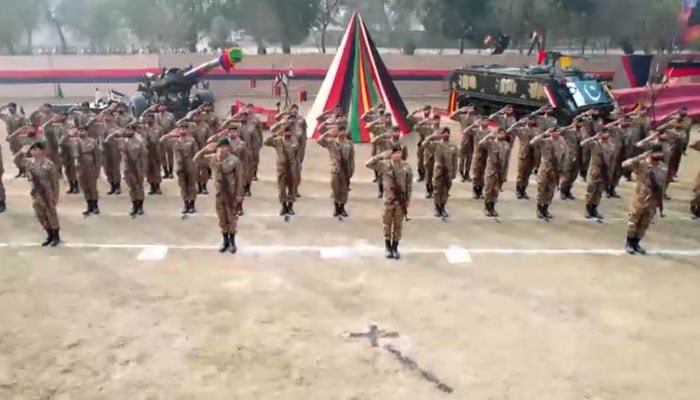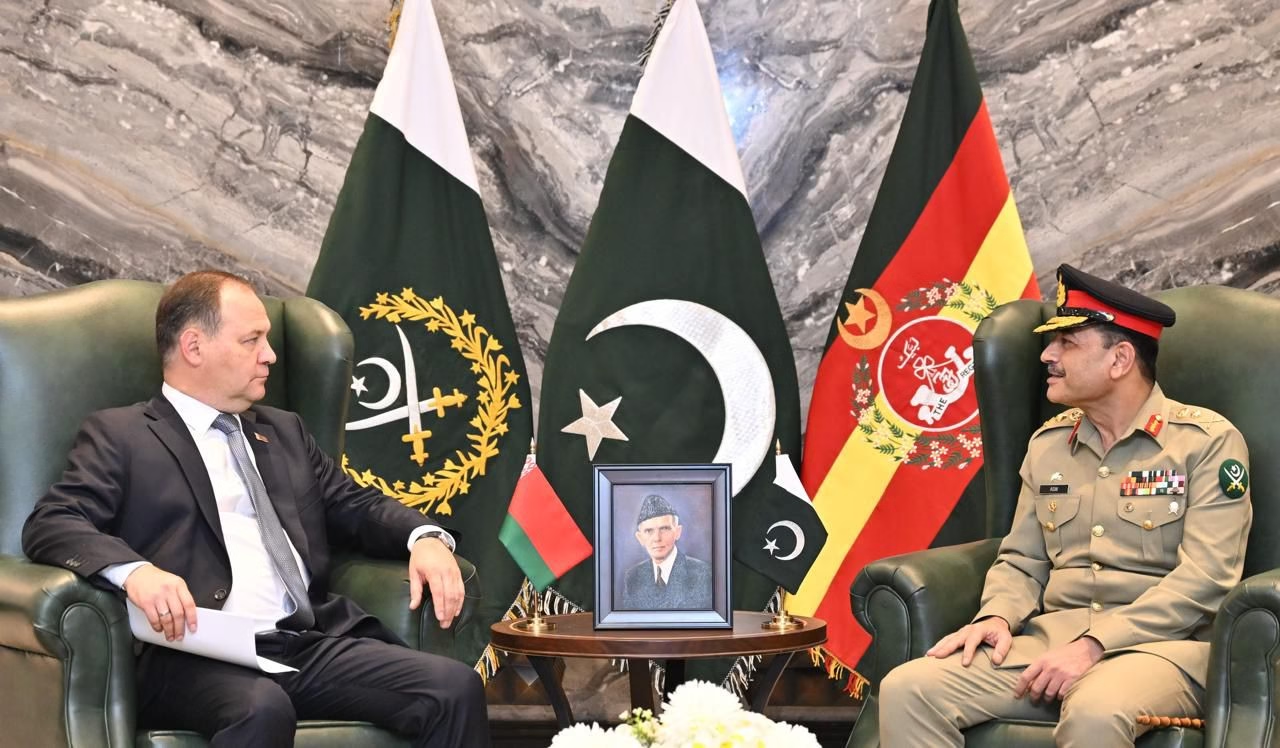Under the auspices of the Multan Corps, a significant milestone was achieved with the commencement of joint military training between the Pakistan Army and the Royal Saudi Land Forces in Okara Garrison.
According to the ISPR (Inter-Services Public Relations), the initiation of collaborative training witnessed both countries’ military forces presenting exemplary military drills during the opening ceremony. The event included the unveiling of the national flags of both nations, accompanied by the resonating tunes of their respective national anthems. Special guests at the ceremony included the Garrison Commander.
ISPR reported that the joint training program aims to provide an opportunity for the armed forces of both countries to refine their classroom sessions and enhance their social combat skills. The collaborative effort intends to create a platform where the armed forces of Pakistan and Saudi Arabia can mutually benefit from shared expertise, fostering greater camaraderie and military cooperation.
During the inauguration ceremony, special guests, including the Garrison Commander, emphasized that the joint training initiative will serve as an occasion for officers and soldiers from both nations to sow the seeds of shared learning and strengthen the bonds of friendship and cooperation.
The program, structured to include various training modules, will not only focus on military tactics but also contribute to developing essential skills required in contemporary warfare. The participants will engage in collaborative exercises, enabling them to leverage each other’s strengths and expertise.
The symbolic gesture of planting joint training seeds underscores the commitment of Pakistan and Saudi Arabia to fortify their military collaboration. This endeavor aligns with the broader objective of fostering regional security and stability. As the joint training progresses, it is expected to contribute significantly to the professional development of military personnel from both nations, enhancing their preparedness and effectiveness in the face of evolving security challenges.



